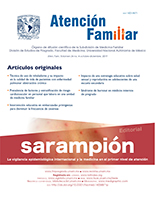Surrogate Motherhood and its Impact on Infertility
Main Article Content
Abstract
The complexity of culture has promoted various changes in human relations, which lead to the formation of different types of families. The problems of human reproduction have become a challenge for public health and for the development of new techniques focused on solving them. In vitro fertilization by intracytoplasmic sperm injection (ivf icsi) is an assisted reproduction technique used in surrogate motherhood. This consists of requesting a carrier mother, who will not have parenting rights and whose role is limited to the development of the new intrauterine being. This process provides the opportunity to be parents to couples or people who have not achieved a successful pregnancy. This brief addresses historical aspects of surrogate motherhood, the epidemiology of major reproductive problems, legal regulations, as well as ethical considerations that this process entails.
